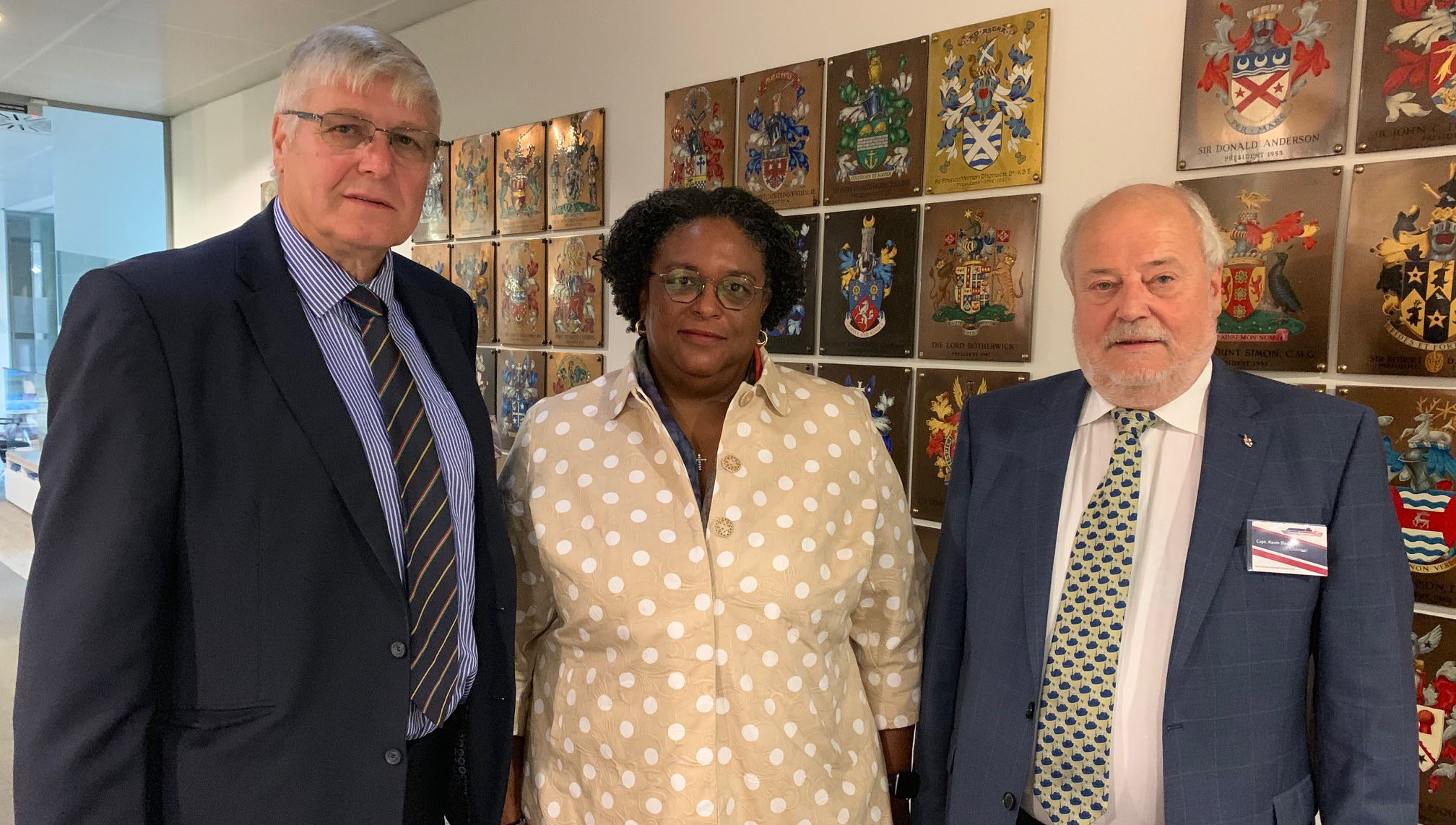Barbadian prime minister backs disaster relief vessel charity as islands come to grips with devastation wrought by Hurricane Dorian
9 September 2019

The prime minister of Barbados Mia Mottley QC has made a heartfelt plea to the international community to work in 'collective partnership' to help restore the islands of Grande Bermuda and Great Abaco following the devastation wrought by Hurricane Dorian last week.
Speaking on Monday 9 September 2019 at the launch of the Britannia Maritime Aid charity at the UK Chamber of Shipping in London, Prime Minister Mottley, who was on her way to give a lecture in Geneva, said the storm had given her pause to reflect on the importance of collaborative effort in the global community.
'We are on the frontline of the battle against climate change,' she said. ‘Our value is compromised by a world that is willing to accept climate change of 2 degrees Celsius or more when we need 1.5 degrees Celsius or less.’
Britannia Maritime Aid (BMA) is a registered charity set up to fund a £150m disaster relief ship which would also offer cadet training berths and deliver ocean advocacy programmes, including marine clean-up and research.
Prime Minister Mottley said Barbados was very happy to be involved in the BMA venture 'at all levels', but that the most important thing was to expand the number of people the island in training. She pledged to look at funding and other in-kind benefits in order to make the project 'happen fast'.
Following design approval and fundraising, the disaster recovery vessel would take four to five years to build – potentially by a UK shipyard – and would be based full time in Barbados. BMA had been in contact with Prime Minister Mottley for over a year before the recent disaster struck.
'Our ship would be able to carry significantly more humanitarian aid and disaster relief equipment than at present, and able to act as headquarters and accommodation for hundreds of first response personnel flown out of the UK,' BMA chairman Captain Kevin Slade said.
'As well as helping to save lives and rebuild shattered communities, we will also help train the next generation of seafarers and assist in vital environmental work.'
The planned newbuilding vessel will have a training centre, landing craft, helicopter drones, rough terrain vehicles, onboard medical facilities, briefing rooms, and a full mission bridge and engine room simulators for trainees.
An armoured beach recovery vehicle and onboard workboat will allow for beach surveys and clean up – even where harbours are damaged and inaccessible to other vessels. Cadets will be deployed to assist in the clean-up, providing practical experience to supplement college education.
The ship will be able to carry up to 6,000 tonnes of vehicles and aid supplies including field hospitals, field kitchens, tents, fresh water and fuel for devastated areas.
The BMA plans to take on second-year cadets for two-month rotations. Cadets will make up 50% of the berth space up to a maximum of 60 per time.
Hands-on training will complement onboard tutorials, and dedicated lecturers who are not part of the operational crew will be made available to cadets. Cadets will additionally be mentored by qualified crew.
‘There is a global shortage of cadet training ships with berth demand for 51,000 spaces and supply of 25,000,’ BMA’s Mr Slade said. ‘I have no doubt that whatever capability we can provide will be taken up.’
With the newbuilding vessel at least four to five years away, BMA is considering an interim vessel purchased from the secondhand market and refitted for purpose. Purchase cost of that vessel would be between £2m-£12m with conversion costs estimated at up to £10m.
The interim vessel could be on the water in the Caribbean within the year.
Funding challenge
The big challenge for the charity now is to raise enough funds for both vessels. BMA has anticipated a dual funding model for the newbuilding, splitting out operational costs from vessel purchase costs.
Operating costs could be covered by 'eco volunteers' who do charitable work such as beach clean-up and community projects; by chartering the vessel out as for research purposes; chartering it for disaster relief; and paid spaces from cadet sponsors for training berths.
The charity is currently pitching training berths at £1,000 per cadet, although that funding could be paid by multiple sources such as crewing agencies, ship owners and from SmartPlus funding, BMA suggested.
The disaster relief vessel could also emulate the Mercy Ships model where qualified crew give up their time for free.
Vessel purchase funding is planned as a mixture of crowdfunding – up to £20,000 for the payment deposit – and government support.
BMA thinks the project fits with the UK government’s Maritime 2050 strategy, which should help with its funding drive.
It was suggested at the launch event that the proposed newbuilding vessel could replace Royal Fleet Auxiliary amphibious support vessel RFA Mounts Bay, stationed permanently in the Caribbean in preparation for hurricane season, as part of a cost-savings exercise. BMA could take on Royal Navy (RN) cadets and train them for less money than it is currently costing the RN. RFA Mounts Bay could then be redeployed back to the UK.
The BMA is in the process of putting together a detailed project financial case for the British government.
Tags
